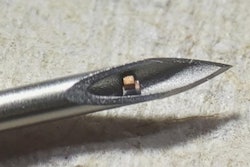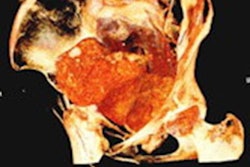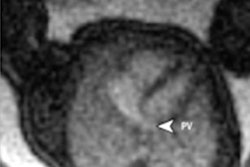
Researchers have developed a new ultrasound technique to monitor the placenta for impaired fetal blood flow early in pregnancy, according to study funded by the U.S. National Institutes of Health and published in April in eBioMedicine.
The study, led by John G. Sled, PhD, from the Hospital for Sick Children in Toronto, found that by using conventional ultrasound equipment, subtle differences in the pulsation of fetal blood can be found through the arteries at the fetal and placental ends of the umbilical cord. This potentially enables physicians to identify placental abnormalities that impair fetal blood flow and, if necessary, deliver the fetus early.
Like current ultrasound techniques, the new technique can also detect impaired flow of maternal blood through the placenta, authors said.
Researchers tested the new technique with ultrasound scans on women between the 26th and 32nd weeks of pregnancy and diagnosed those with circulatory problems in the maternal or fetal part of the placenta.
The authors say their method provides a way to diagnose circulation problems in the placenta that can harm the fetus and would otherwise go undetected until late in pregnancy.



















